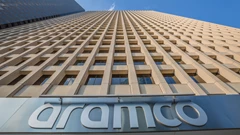Korea Plans Record Power Price Hike in Hit to Consumers
(Bloomberg) -- South Korea plans a steep increase to electricity rates next year as the nation’s state-run utility faces a record loss from sky-high fuel costs.
Electricity prices for households and businesses will be increased by 13.1 won per kilowatt-hour (1 US cent) for the first three months of 2023, according to a statement Friday from Korea Electric Power Corp. That’s a 9.5% jump, which is the biggest quarterly rise in company data going back to 1982, and compares with 19.3 won for all of 2022.
“Adjusting electricity and gas rates is inevitable in order to resolve fundamental challenges such as normalizing management at Korea Electric and Korea Gas, and securing sustainability of energy supply,” Lee Chang-yang, minister of trade, industry and energy, said in a briefing Friday.
South Korea’s power prices haven’t jumped at such a quick pace since the oil crisis before the company, known as Kepco, began calculating quarterly data, according to a spokesman. To be sure, while the latest increase is large for South Korea, it pales in comparison to similar rate hikes in Europe.
Despite surging global energy prices, South Korea’s monopoly power distributor refrained from significantly increasing electricity rates in 2022 to help ease the inflation hit to consumers. That has contributed to record losses, which are expected to exceed 30 trillion won ($24 billion) this year, Lee said.

The rate increase will provide Kepco an additional 7 trillion won in profit in 2023, according to Lee. The government aims to use more lower-cost energy such as nuclear power, as the share of sources that are costlier and more vulnerable to price volatility — such as liquefied natural gas — has increased over the past five years, exacerbating Kepco’s losses.
Further rate increases will be considered for the second quarter after reviewing the local economy, financial status of state-run companies, as well as global energy prices, Lee said. The government will also look into a gas price hike after keeping rates frozen in the first three months during peak winter heating demand.
See also: Credit Risks Loom for Korean Utility Hooked on Coal, Study Says
The power price increase comes as South Korean households are facing higher living costs from food to public transportation. Countries worldwide are wrestling with soaring energy prices after Russia’s war on Ukraine.
Inflation is expected to remain elevated, and then decelerate next year as oil stabilizes and higher interest rates slow economies both at home and abroad, Bank of Korea Governor Rhee Chang-yong said last week. Kepco’s rate hike in the first quarter will have a 0.15 percentage-point impact on inflation next year, Bang Kisun, first vice finance minister, said in the briefing Friday.
Kepco shares fell 1.4% in 2022, declining for a seventh consecutive year.
(Adds government comments beginning with third paragraph.)
More stories like this are available on bloomberg.com
©2022 Bloomberg L.P.
KEEPING THE ENERGY INDUSTRY CONNECTED
Subscribe to our newsletter and get the best of Energy Connects directly to your inbox each week.
By subscribing, you agree to the processing of your personal data by dmg events as described in the Privacy Policy.
More utilities news

Iran Blackouts Leave Industry in Tatters Ahead of Trump’s Return

Starmer’s ‘Decade of Renewal’ Is Already Running Behind Schedule

Modi Woos Global EV Investors in India’s Push For Green Energy

Iceland Energy Minister Plans to Speed Up New Power Plants

Aramco plans transition minerals JV with Ma’aden

Edison Move to Keep LA Power Lines Operating Draws Scrutiny

Dozens Missing in LA as High Winds Threaten to Spark More Fires

Los Angeles Fires Rage as High Winds Set to Return This Week

Bullish Brent Bets at May High Even Before Sanctions on Russia
















